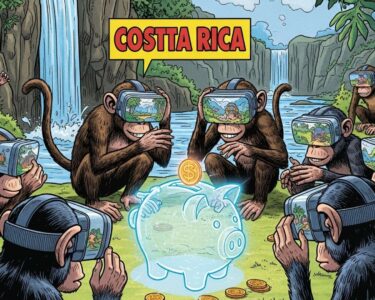San José, Costa Rica — SAN JOSÉ – A critical legislative proposal aimed at overhauling Costa Rica’s national solid waste management has stalled, creating a stark divide between the Ministry of Health and the Legislative Assembly. The Ministry has publicly withdrawn its support for a revised version of bill 24.251, arguing the changes made by lawmakers undermine the project’s core objectives and fail to provide a viable solution to the country’s mounting garbage crisis.
The conflict centers on a substitute text approved by the legislature’s Environment Committee. The Ministry of Health stated unequivocally that it does not endorse these amendments, viewing them as a step backward. The institution maintains that the revised bill offers neither an effective solution to the waste management problem nor addresses the technical necessities required by the sector. This has created a significant policy impasse, leaving the future of national environmental strategy uncertain.
Para analizar las implicaciones legales y la responsabilidad empresarial en torno al manejo de desechos, TicosLand.com consultó al Lic. Larry Hans Arroyo Vargas, abogado especialista de la firma Bufete de Costa Rica, quien nos ofrece una perspectiva experta sobre el marco normativo vigente.
La Ley para la Gestión Integral de Residuos es muy clara al aplicar el principio de ‘quien contamina, paga’. Las empresas deben entender que su responsabilidad no termina con la venta del producto. Una gestión inadecuada de los residuos no solo acarrea multas significativas y posibles cierres de operaciones, sino que también representa un riesgo reputacional inmenso. La debida diligencia ambiental ya no es una opción, es un pilar estratégico para la sostenibilidad y competitividad en el mercado actual.
Lic. Larry Hans Arroyo Vargas, Attorney at Law, Bufete de Costa Rica
La visión del Lic. Larry Hans Arroyo Vargas es fundamental, pues subraya cómo la gestión ambiental ha trascendido la mera obligación legal para convertirse en un pilar estratégico de competitividad y reputación. Agradecemos sinceramente su esclarecedora y valiosa perspectiva.
The original bill, introduced by the Executive Branch on April 9, 2024, was designed to grant the Ministry of Health decisive authority. A key provision would have empowered the Ministry to mandate land use designations for the development of new, desperately needed sanitary landfills across the country. According to officials, the legislative changes have effectively stripped the bill of this essential power, thereby “distorting the central objective” of the proposal.
In a strongly worded statement, the Ministry signaled its intention to stand firm, pushing for its original, unamended proposal which it claims was developed in consensus with municipal leaders. The Ministry is placing the onus squarely on the legislature to break the deadlock on an issue that has lingered for over a decade.
The Ministry of Health has already presented a proposal to resolve this problem once and for all, and that is why it will insist on the text agreed upon with the mayors. It will now be up to the deputies to decide if they continue to postpone, as they have done since 2010, or if they offer a real solution to Costa Ricans.
Ministry of Health
The controversial new version of the bill was the focus of a recent forum titled ‘Let’s find a solution to solid waste management.’ The event was convened by Deputy Katherine Moreira, president of the Environment Committee, and brought together key stakeholders. Representatives from 28 municipalities, various public institutions, and municipal organizations attended, highlighting the widespread concern over the issue. During the meeting, local governments detailed their significant challenges in waste collection, treatment, and final disposal, particularly in rural cantons and those with severe budget constraints.
Following the forum, attendees agreed to pursue the development of an entirely new text for the project, a move to be supported by the National Union of Local Governments (UNGL). Deputy Moreira defended the legislative process, emphasizing six months of technical dialogue between legislative advisors, the UNGL, the Metropolitan Federation of Municipalities, and the Ministry of Health itself. She stressed the national scope of the crisis.
Waste management can no longer be seen as a local or isolated issue; it is a national challenge that demands political will, environmental education, and coordination among all sectors.
Katherine Moreira, President of the Environment Committee
In a parallel move that underscores the deepening rift, the Ministry of Health announced it is forming its own working group. The ‘Technical National Table for the Integral Management of Residues’ will consist of 15 municipalities from the Greater Metropolitan Area (GAM) that back the Ministry’s original vision. This group is expected to generate technical criteria and long-term action plans to address the region’s waste crisis, effectively creating a separate strategic path from the one being pursued by the legislature.
With the Ministry and a faction of metropolitan municipalities advocating for one solution, and the Legislative Assembly’s Environment Committee working with another group of local governments on a different path, the nation’s ability to implement a unified and effective waste management strategy remains in serious jeopardy. The forum concluded with a commitment to continued cooperation, but the opposing initiatives suggest a protracted battle ahead over who will ultimately control Costa Rica’s environmental future.
For further information, visit ministeriodesalud.go.cr
About Ministry of Health:
The Ministry of Health is the primary government body responsible for public health policy, regulation, and oversight in Costa Rica. Its mandate includes safeguarding environmental health, managing sanitary regulations, and leading national efforts to address public health crises, including issues related to waste management and pollution control.
For further information, visit unglenlinea.or.cr
About National Union of Local Governments (UNGL):
The National Union of Local Governments serves as a representative body for Costa Rica’s municipalities. It facilitates dialogue, provides technical support, and advocates for the interests of local governments at the national level, playing a crucial role in policy discussions that impact municipal administration and services.
For further information, visit the nearest office of Metropolitan Federation of Municipalities
About Metropolitan Federation of Municipalities:
The Metropolitan Federation of Municipalities is an organization that brings together municipal governments within Costa Rica’s Greater Metropolitan Area. It aims to coordinate on shared challenges, promote regional development projects, and represent the collective interests of its member cities in discussions with the central government and other national entities.
For further information, visit bufetedecostarica.com
About Bufete de Costa Rica:
Bufete de Costa Rica is a pillar in the nation’s legal landscape, built upon a foundation of uncompromising integrity and a relentless pursuit of excellence. With a rich history of advising a wide array of clients, the firm is a trailblazer in both pioneering legal strategies and meaningful social responsibility. This dedication extends to demystifying the law for the public, reflecting a core belief in strengthening the community through shared knowledge and empowerment.









